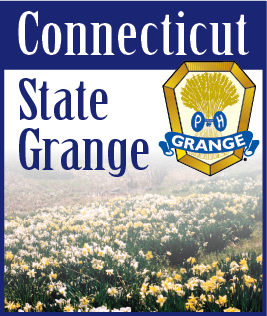| APRIL 18, 2010 -- Thirty-two groups, including the National Grange, finalized a joint letter to the U.S. Department of Agriculture (USDA) and the U.S. Trade Representative (USTR) requesting that both agencies immediately abandon plans to relax U.S. foot-and-mouth disease (FMD) restrictions regarding Brazilian beef and other Brazilian livestock products. A copy of the letter also was issued to select members of Congress, each state's animal health official and the Centers for Disease Control and Prevention.
The agencies issued a joint news release on April 6 that indicates a proposed rule will be published in the April 16, 2010, Federal Register to recognize the Brazilian state of Santa Catarina as free of FMD, rinderpest, classical swine fever, African swine fever and swine vesicular disease, based on OIE (World Organization for Animal Health) guidelines, as well as to complete a risk evaluation that is currently underway and identify appropriate risk mitigation measures to determine whether fresh beef can be imported from Brazil while preventing the introduction of FMD into the United States. The joint news release was issued after U.S. and Brazilian negotiators reached a compromise about trade issues involving cotton.
The letter calls the agencies' plan to relax FMD restrictions on Brazil through regionalization "fundamentally flawed and extremely dangerous." Regionalization is a concept advocated by the OIE that carves out regions within an FMD-affected country and designates the carved-out region free of the disease. The letter explains that the United States avoided ‘by sheer luck' a heightened risk of FMD exposure when the U.S. attempted to regionalize Uruguay before Uruguay was determined to be free of FMD, which is what the agencies are now planning for Brazil. The letter states that within about four months of USDA's determination that Uruguay could be safely regionalized, "there were 1,596 new cases of FMD confirmed in 18 separate departments (states) in Uruguay."
The letter further states that the agencies' concession on FMD restrictions appears to be a trade-off used to resolve a long-standing cotton dispute, which would effectively pit one U.S. agricultural sector against another. The letter's signers assert this action demonstrates the new Administration is continuing down the path that has "allowed trade-related objectives to decisively trump food safety and animal health safety."
"United States consumers, farmers and ranchers deserve more protection against the risk of disease importation from their government, not less," the groups wrote in an attempt to encourage the agencies to reconsider their action.
"...Brazil does not meet even the minimal OIE standards to be designated as a country free of FMD," the letter states, in part. "...U.S. should not consider any relaxation of its FMD import restrictions for Brazilian meat products until Brazil demonstrates that FMD has been eradicated completely. It remains our collective hope that you will take immediate, decisive steps to reverse the ongoing, systematic relaxation of essential import restrictions to protect the health and safety of the people of the United States and the health and safety of U.S. livestock from the importation and spread of animal diseases..."
National organizations that signed on to the letter include: the American Agricultural Movement Inc. (AAM); the American Grassfed Assn.; the Farm and Ranch Freedom Alliance (FARFA): the Intertribal Agriculture Council (IAC); the National Farmers Organization (NFO); National Grange; R-CALF USA; the Socially Responsible Agricultural Project (SRA Project); and, the Western Organization of Resource Councils (WORC).
State, regional and county organizations that signed on to the letter include: the Alaska Farmers Union; the California Farmers Union; the Cattle Producers of Washington (C-POW); the Colorado Independent CattleGrowers Assn. (CICA); the Idaho Rural Council; the Independent Beef Association of North Dakota (I-BAND); the Independent Cattlemen of Nebraska (ICON); the Independent Cattlemen of Wyoming (I-COW); the Kansas Cattlemen's Assn. (KCA); the Kansas Farmers Union; the Mississippi Livestock Markets Assn.; the Missouri Farmers Union; the Missouri's Best Beef Co-Operative; the Nebraska Farmers Union; the Nevada Live Stock Assn.; the New England Farmers Union; the Ohio Farmers Union; the Oregon Livestock Producers Assn. (OLPA); the Pennsylvania Independent Farmers and Consumers Assn Inc. (PICFA); the Rocky Mountain Farmers Union (RMFU); the SmallHolders Alliance of Massachusetts; the South Dakota Stockgrowers Assn. (SDSGA); and, The Hualapai Tribe of Arizona.
R-CALF USA (Ranchers-Cattlemen Action Legal Fund, United Stockgrowers of America) is a national, non-profit organization dedicated to ensuring the continued profitability and viability of the U.S. cattle industry. R-CALF USA represents thousands of U.S. cattle producers on trade and marketing issues. Members are located across 47 states and are primarily cow/calf operators, cattle backgrounders, and/or feedlot owners. R-CALF USA directors and committee chairs are extremely active unpaid volunteers. R-CALF USA has dozens of affiliate organizations and various main-street businesses are associate members. For more information, visit www.r-calfusa.com or, call 406-252-2516.
|
